Arabic Cases Meaning, Types And Examples
Advertisements
One distinctive feature of the Arabic language is its use of cases, which are grammatical forms that indicate the role of a noun or pronoun in a sentence.
In this lesson, we are going to study the meaning of Arabic cases, signs and the three cases of Arabic Nouns.
What Is Arabic Cases?
The Arabic name for the grammatical case is اِعْرَابٌ. Arabic cases describe the grammatical functions of nouns, pronouns and noun phrases, such as whether a noun or pronoun is the subject or object.
The change in case of a noun due to the change in vowelling of the final consonant is called اِعْرَابٌ, declension.
Declension is of two types:
Advertisements
- Declension with harakat (i’irab bil harakat) which is shown by fathah, dammah and kasrah.
- The other is declension with letters (i’irab bil Huruf) which is shown by means of some letters.
Types Of Arabic Noun Cases
There are three cases in the Arabic language, they are:
1. The Nominative Case حالة الرفع
Nominative cases is also known as subjective case. It means that the noun is marked by a Dammah (or equivalent) on the ending letter (s). It is frequently the case with the subject.
When a noun is the doer of the verb (فاعل ), or the subject (مبتدا), or predicate (خبر), it is said to be in the nominative case.
Here are a few examples of the nominative case in Arabic:
- The student studies Arabic الطالبُ يدرس اللغة العربية
- The book is interesting الكتابُ ممتع
Here, الطالب and الكتابُ are in the nominative case, as they the subject of the sentence.
Advertisements
2. The Accusative Case حالة النصب
It means that the noun is marked by a Fatha (or an equivalent) on the ending letter(s). It is often the case of the object.
The accusative case is used to indicate the direct object of a verb.
When a noun is an object or it indicates the condition of the doer or the object, it is regarded to be in the accusative case.
- I wrote a book كتبت كتابًا
- I planted a flower زرعت زهرةً
3. The Genitive Case حالة الجر
It means that the noun is marked by a Kas’rah (or an equivalent) on the ending letter(s). It is often the case of the nouns that follow Prepositions and Idaafa.
The genitive case is used to indicate possession or ownership.
When the noun is possessed by (mudafun ilaih) or it comes after a preposition (harf jar), it is regarded to be in the genitive case.
- I left the school ِخرجت من المدرسة
- The father is in the house ِالأب في البيت
- The book of the scholars كتاب العلماء
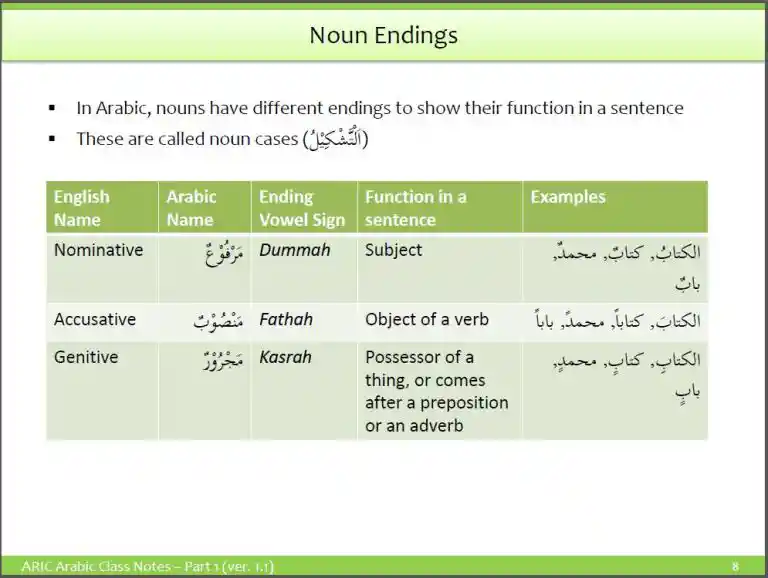
Read 200+ Most Common Words In Arabic
The Signs of Cases In Arabic, Declension of Different Nouns
If a noun is singular or a broken plural, in nominative cases, the dammatain (two dhammas) will be read on it.
If the noun is indefinite, the dammatain will be read on the word. However, if the noun is definite, only one dammah will be read on it, likewise in accusative and genitive cases.
The adjective will be in the same case as the preceding noun. If the noun is with dhamma, the adjective will also be dhamma.
If it is with fatha, same and if it is with kasra, the adjective will also be the with kasra, the adjective will follow suit.
If a noun is a dual, the suffix (انِ) will be appended in the nominative Case and (ينِ) to accusative and genitive cases. Example:
- كتب الرجلانِ مكتوبينِ الى المرأتينِ
- The two men wrote two letters to the two women.
If a word is the sound masculine plural, the suffix (ونَ) will be appended in the nominative case and (ينَ) in accusative and genitive cases, e.g.
- أرسل المسلمونَ المجاهدينَ الى الظالمين
- The Muslims despatched the mujāhidīn to the oppressors.
The sound feminine plural will be read with two dhammas in nominative and with two kasras in accusative and genitive cases.
| Sentence in Arabic | Meaning | Cases |
| جاء محمدُ | Muhammad came | Nominative |
| جاء ابن محمد | The son of Muhammad came | Accusative |
| رأيت محمداً | I saw Muhammad | Genitive |
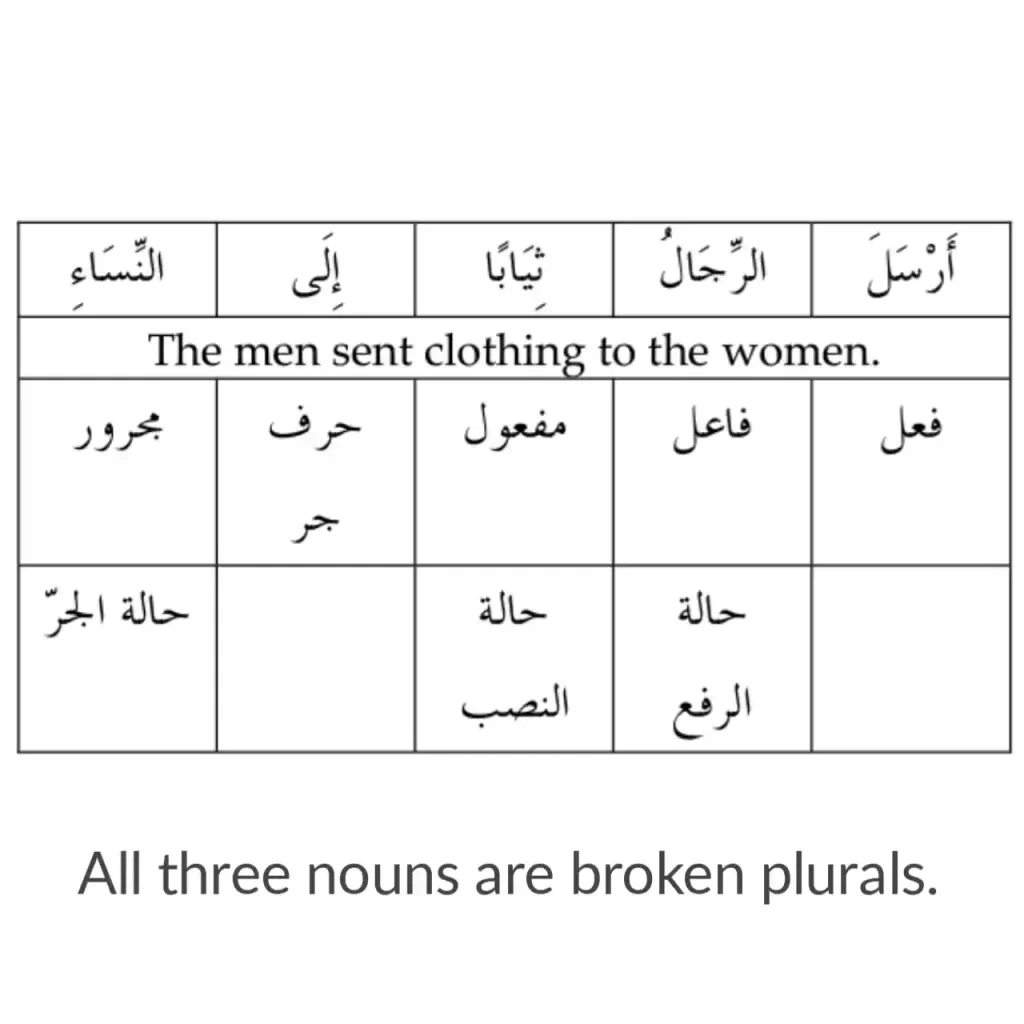
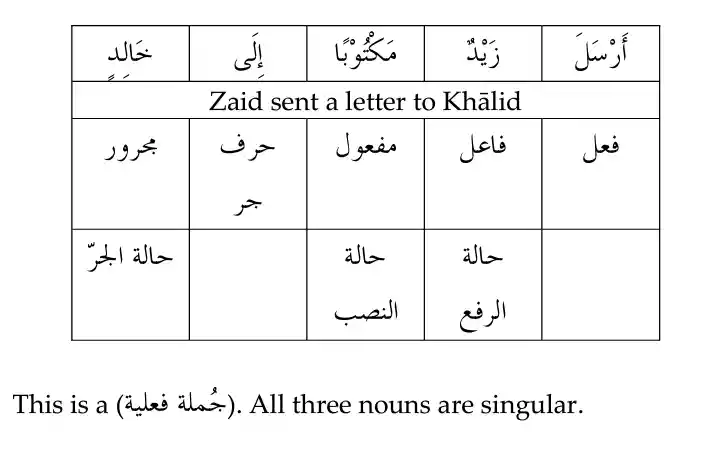
Conclusion
It is important to understand and use the different cases correctly in Arabic, as they play a crucial role in accurately expressing grammatical relationships and conveying meaning in the language.
Understanding and using cases correctly can also help you to improve your overall grammar and communication skills in Arabic.
Advertisements

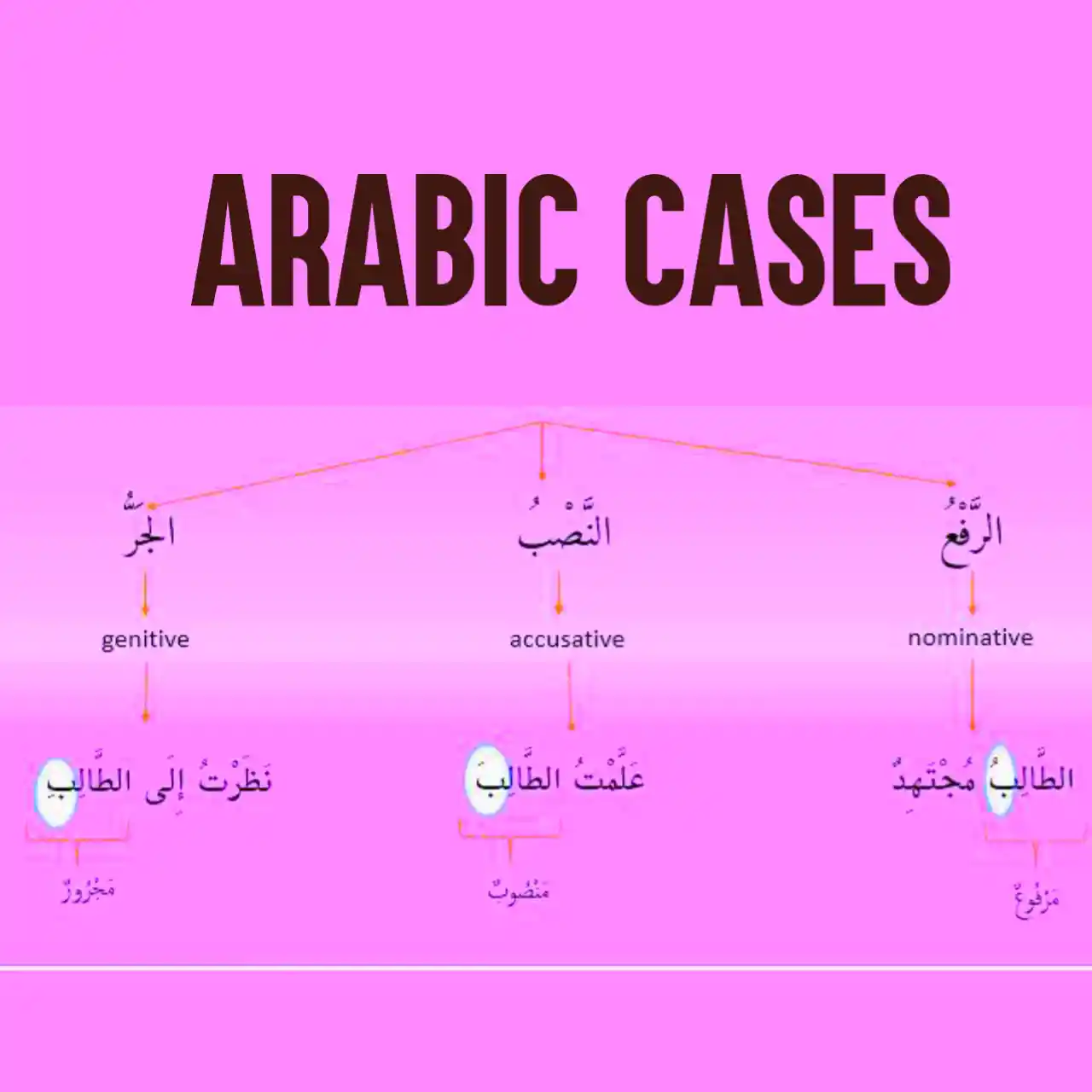
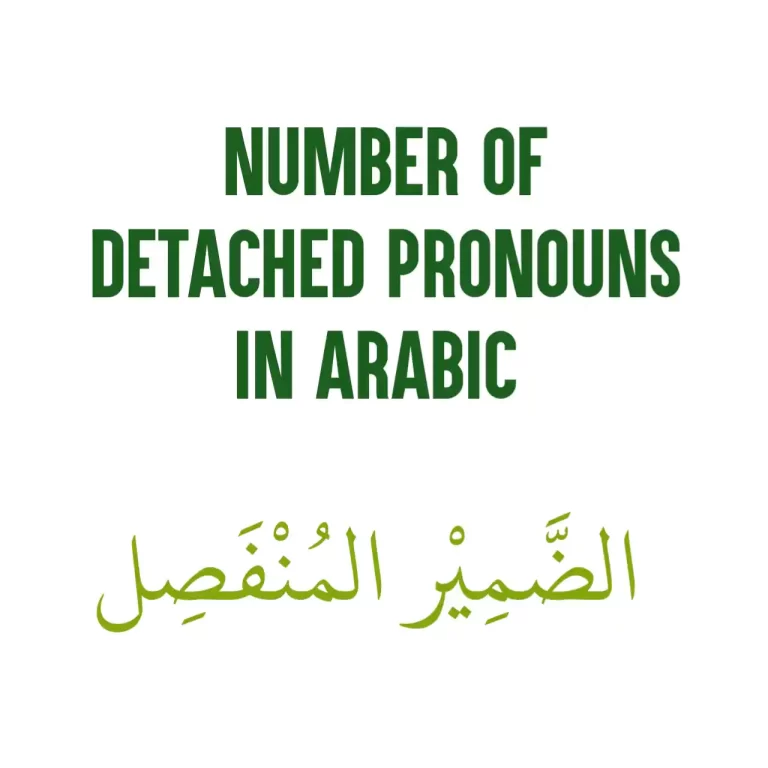
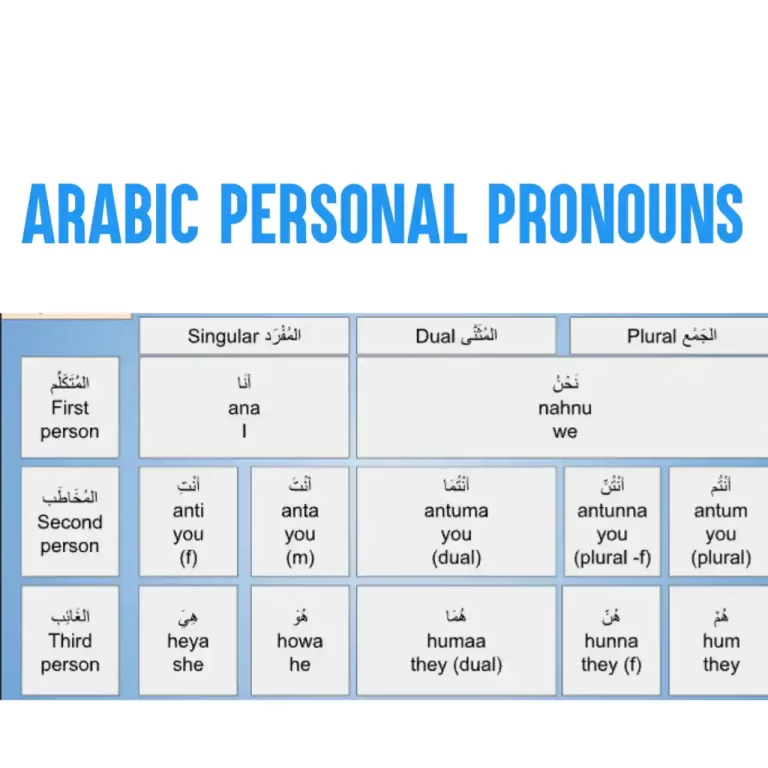

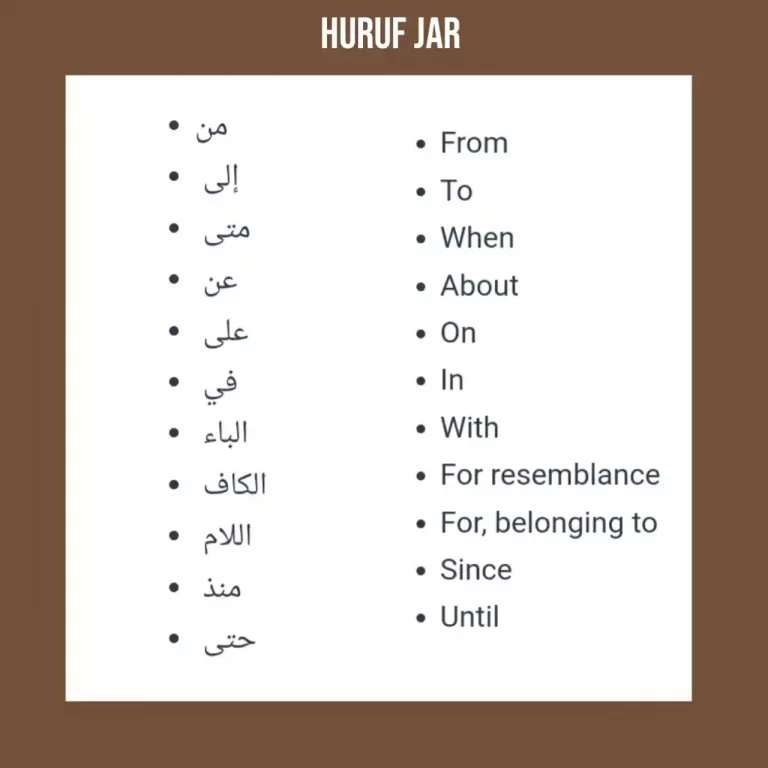


One Comment